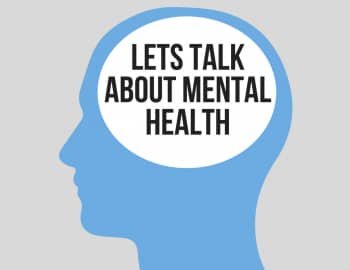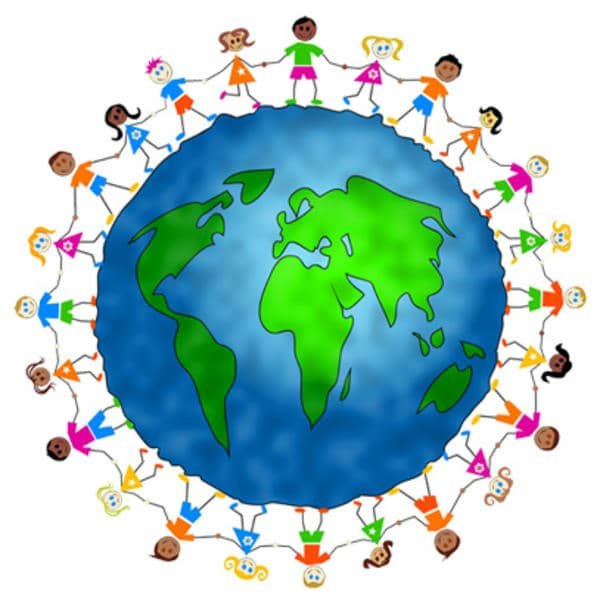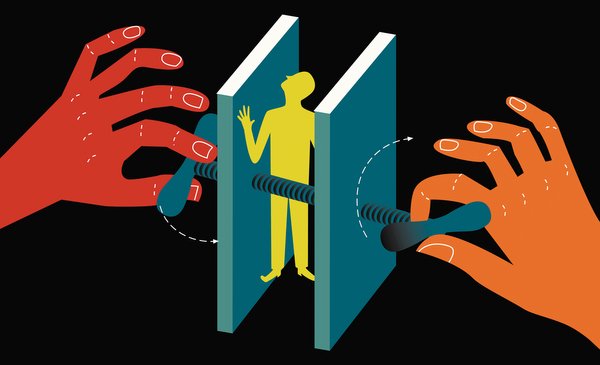



By Kate
Truth of the matter, there is still a lot to be done when it comes to raising mental health awareness. Mental health is sadly at a larger scale now than it has ever been. One in four people in the world is or will be affected by mental disorders in their life. In 2018 a report released by World Health Organization showed that around 450 million people currently suffer mental or neurological disorders, placing mental disorders among the leading causes of ill-health and disability worldwide.

For us plebeians, common sufferers of mental health are we and conversations about mental health are essential. For a large number of people, physical health and appearance is mostly the topic of daily conversations, so why not mental health? There is only one reason why mental health is not often discussed, and it is STIGMA. In this post I would love to shed more light about mental illness and I will focus much on a few dreadful statistics about mental health
1. Worst Ratio of Psychiatric doctors to population
In 2018, for the first time in our generation three Malawian citizens graduated as Psychiatric doctors. Bringing the total number of full time psychiatrists in the country to just five. Meaning to say that one psychiatrist for every 4.5 million people in the country, probably making it the worst ratio on the continent.
Mental health is the most neglected illness in Malawi and the most underfunded public health problem. Even though mental illness is curable the majority of people in the country do not get the required help and the ratio of psychiatric doctors to population best explains it.
2. Stigma

As stated, mental illnesses are treatable, but nearly two-thirds of people with a known mental disorder never seek help from a health professional.
Dr Gro Harlem Brundtland, Director-General of World Health Organization, said ‘Mental illness is not a personal failure. In fact if there is any failure, it is to be found in the way we have responded to people with mental and brain disorders’.
Dr Gro was perfectly right, because of the way society responds to people with mental illness makes it scary for someone to speak of what they are going through. And this can be eradicated by raising awareness of mental health and how very rewarding it is to openly talk about your mental health.
A large number of people are seen hiding behind false, carefully crafted personas these days. They feel protected from the risk of being judged by what they are truly going through. Social media for example, allows us to share thoughts, feelings and lives publicly with others. But as most like to put it, twitter to say the least, is not for the weak hearted. Then comes the question, how can one be their truest self without getting trolled for it?
As a result, many are facing an increased personal depression and/or anxiety, since they always have to act the opposite of how they truly feel. A Malawian rapper, Suffix (@SuffixMw) tweeted ‘People who pretend to have their life, relationship, finances in order to impress people on social media are fighting the worst kind of depression.’
This leads me to conclude, talking about mental health issues and struggles can help one find ways on how to best manage their mental problems than worsening it by pretending to be in a good place. But are we giving people the space to do that?
3. Those living in low income households are most likely to suffer with Mental Illness
Economies are divided into four groupings: low, lower-middle, upper-middle and high. Income is measured using gross national income (GNI) per capita, in U.S dollars converted from local currency using the World Bank Atlas method, by the GNI obtained by the economists in World Bank country units. The World Bank in addition has Demographers who estimate Population size.
In 2016, in a report released by the World Bank stated that Malawi has the lowest gross national income per capita. As they continued to make their calculations, they indicated that Malawians would share K110 000 while in an independent state like Monaco on France’s Mediterranean coastline, would share about K45 million each as assuming total wealth. As the years go, Malawi is still listed as one of the poorest countries in the world.

From this angle, we can see how many people are likely to face mental health problems in Malawi. There is a lot the government of Malawi has to do to empower Malawian citizens on how best they can unlock their potential in finances. This will only be possible if corruption levels go down and resources used to the interest of the public.
4. Half of all Mental illness begins by the age of 14
One in ten children is sexually abused. And mostly these sexual abuses are by family members. Many of these children never say anything for fear of being blamed or not believed at all. That suppression leads to low self-esteem, negative relationship choices, drug abuse and sometimes suicide.
I believe if our society talk about these issues more, it will give the victims courage and hope to stand out and actually say what is happening to them. It gives hope seeing how many organizations are introducing campaigns to offer awareness programs, resources for survivors and partnerships with law enforcers to help sexual abuse and assault victims.

There is almost nothing as powerful as a simple act going first. It shows that you are opening up a judgment- free zone. And a judgment-free zone is what people suffering from mental illness desperately need. I have gone through depression and anxiety to know how being able to speak about it is one of the most effective way of healing.
Let us be a softer with one another, that we can open our arms a little and offer homes to those that are looking for mental healing.
Happy Mental Health Awareness Month!
Kate.